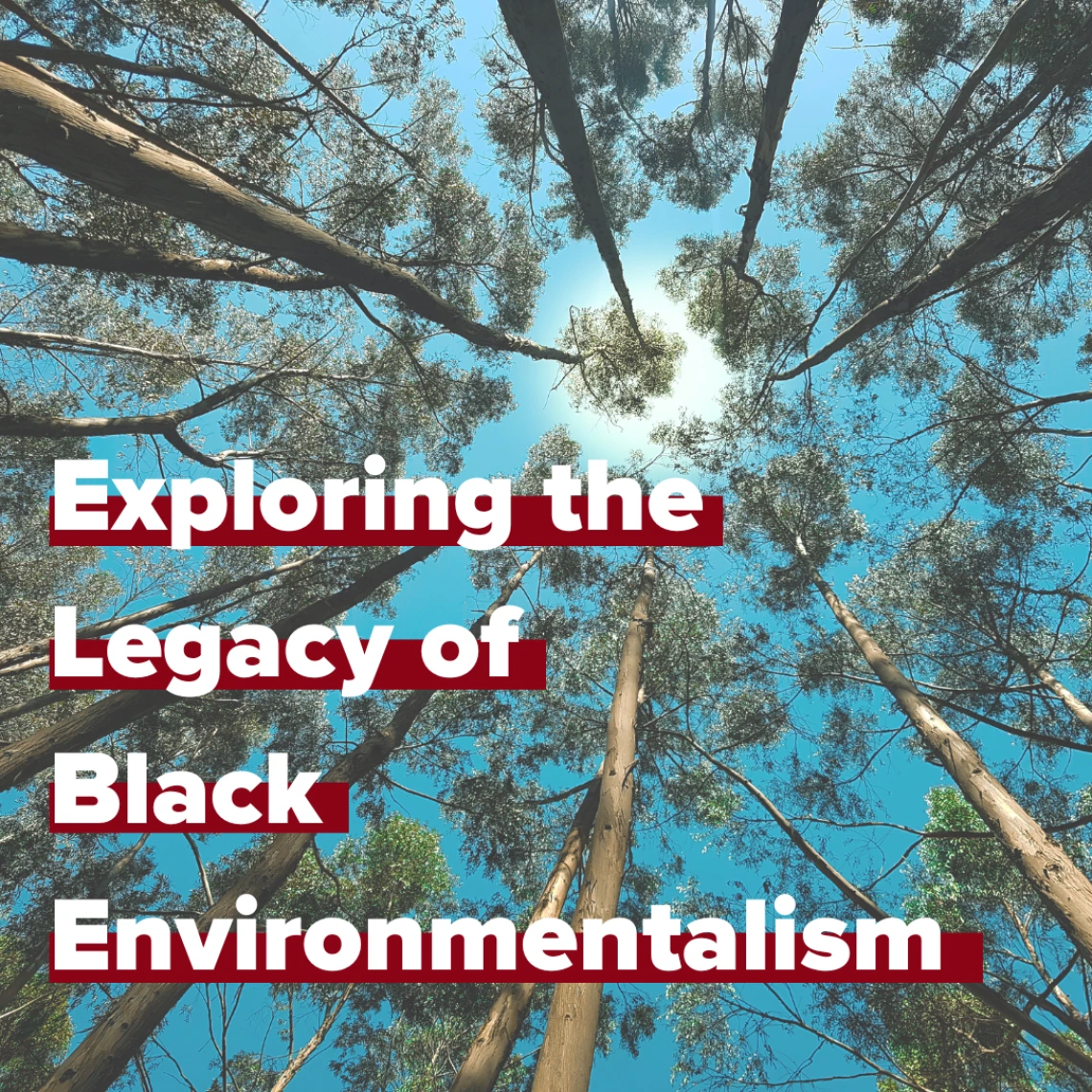Exploring the Legacy of Black Environmentalism

As we celebrate Black History Month, it is essential to recognize and honor the significant contributions of Black individuals to environmentalism. Throughout history, Black voices have played pivotal roles in advocating for environmental justice, conservation efforts and sustainable living practices. In this blog post, we'll explore the intersection of Black history and environmentalism, highlighting key figures, movements and achievements that have enhanced our understanding of environmental stewardship and social justice
One of the most prominent figures in the history of Black environmentalism is Dr. Robert D.

Bullard, often referred to as the "father of environmental justice." As a scholar, activist and author, Dr. Bullard has dedicated his career to highlighting the disproportionate impact of environmental hazards on marginalized communities. His groundbreaking research on environmental racism and advocacy for equitable environmental policies have been instrumental in raising awareness and driving change.
Another trailblazer is Wangari Maathai, the founder of the Green Belt Movement in Kenya. Maathai's work not only focused on environmental conservation but also emphasized the interconnectedness between environmental sustainability, women's empowerment and social justice. Through the planting of millions of trees and grassroots organizing, Maathai demonstrated the power of community-led initiatives in addressing environmental challenges.
Throughout history, Black communities have been at the forefront of environmental justice movements, advocating for clean air, safe drinking water and sustainable development. In the United States, organizations like the Environmental Justice Health Alliance and the Gulf Coast Center for Law & Policy have been instrumental in amplifying the voices of frontline communities and fighting against environmental injustices.
In Flint, Michigan, the water crisis brought national attention to the systemic neglect and environmental racism faced by predominantly Black communities. Grassroots activists and residents mobilized to demand accountability, justice and access to clean water, highlighting the intersection of racial inequality and environmental degradation.
It's crucial to recognize that environmental issues are deeply interconnected with issues of race, class, gender and other forms of identity. The concept of intersectionality, coined by scholar Kimberlé Crenshaw, emphasizes the intersecting nature of social identities and systems of oppression. By understanding these intersections, we can develop more inclusive and holistic approaches to environmental advocacy and policymaking.
Moving Forward:
As we reflect on the legacy of Black environmentalists and the ongoing struggle for environmental justice, it's essential to recognize that the fight is far from over. Environmental challenges such as climate change, pollution and habitat destruction continue to disproportionately impact communities of color. Therefore, we must stand in solidarity with frontline communities, amplify marginalized voices and advocate for systemic change.
Black history is environmental history. From grassroots activists to visionary leaders, Black individuals have been at the forefront of environmental advocacy and justice movements. As we celebrate Black History Month, let us honor the legacy of trailblazers past and present and commit ourselves to building a more just, equitable and sustainable future for all.

